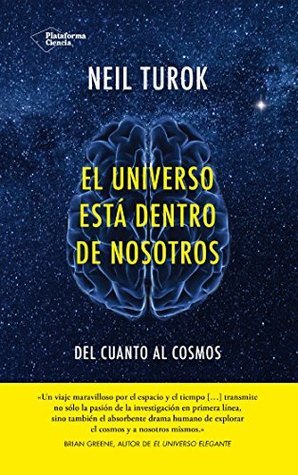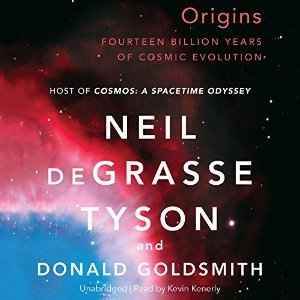
El universo está dentro de nosotros
Book Description
What if the secrets of the universe lie not in distant galaxies but within our very selves? In 'El universo está dentro de nosotros,' Neil Turok takes readers on a breathtaking journey through the fundamental questions of existence, exploring the connections between science, consciousness, and the cosmos. With each page, the boundaries between the self and the universe blur, unlocking profound insights that challenge our understanding of reality. Mysteries unfold with urgency, revealing the remarkable power of human thought and imagination. Are we merely observers of the universe, or do we hold the key to its very essence?
Quick Book Summary
"El universo está dentro de nosotros" by Neil Turok explores the profound relationship between human consciousness and the cosmos. Turok argues that the answers to the greatest mysteries of existence may lie within our own minds as much as in the distant stars. He masterfully weaves together scientific discoveries in physics, astronomy, and philosophy, challenging readers to reconsider the boundaries between self and universe. The book delves into how human curiosity and imagination have shaped our understanding of reality, suggesting that our capacity for thought is itself a fundamental part of the universe. Ultimately, Turok inspires readers to reflect on their place within the vast cosmos, emphasizing the unity of knowledge, discovery, and the human spirit.
Summary of Key Ideas
Table of Contents
The Interconnectedness of Consciousness and the Cosmos
Neil Turok opens his book by presenting the idea that the secrets of the universe are not solely hidden in faraway galaxies or vast expanses, but are intimately connected to human consciousness. He proposes that to truly understand the cosmos, we must look inward as well as outward. This compelling perspective places the observer at the center of inquiry, suggesting that consciousness is not just a byproduct of the universe but a fundamental aspect of it. By blending personal anecdotes with scientific history, Turok sets the stage for a journey that is as philosophical as it is scientific.
The Limits and Power of Human Curiosity
Exploring the remarkable achievements in physics and astronomy, Turok highlights how each breakthrough has been propelled by humanity’s insatiable curiosity. From the discovery of cosmic background radiation to the puzzles of quantum mechanics, he emphasizes the importance of asking bold questions. The narrative traces the evolution of scientific understanding, illustrating how moments of profound insight often stem from simple wonder and persistence. Turok underscores how curiosity is both a tool and a driving force, empowering humans to expand the frontiers of knowledge.
Science as a Pathway to Understanding Reality
Imagination and creativity play a central role in Turok's argument. He demonstrates how theoretical leaps—such as the development of relativity and quantum theory—emerged when scientists allowed themselves to see beyond established paradigms. Imagination, according to Turok, is not merely a peripheral tool but an essential engine of progress. He asserts that the universe, as we understand it, is shaped by our ability to conceptualize realities beyond current evidence, blurring the lines between discovery and invention.
The Role of Imagination in Shaping the Universe
Turok points to the increasingly thin divide between the observer and the observed. By examining the philosophical implications of quantum mechanics and the role of consciousness in measurement, he challenges the notion of an objective universe that is wholly separate from its observers. Instead, the book posits a universe that is partially defined by human experience and understanding, suggesting that self and cosmos are not distinct entities but parts of a larger, interconnected reality.
Blurring the Boundaries Between Self and Universe
Bringing his arguments together, Turok invites readers to embrace the mystery of the universe as an ongoing dialogue between humanity and the cosmos. He champions science not simply as a body of knowledge but as a living method for exploring existence. Ultimately, the book closes on an uplifting note: the quest to understand the universe is an invitation to understand ourselves, and the capacity to wonder is itself a cosmic gift. Turok leaves readers with the sense that, within each of us, lies a reflection of the universe’s profound complexity and potential.
Download This Summary
Get a free PDF of this summary instantly — no email required.



![The Whole Shebang: A State-of-the-Universe[s] Report cover](https://images-na.ssl-images-amazon.com/images/S/compressed.photo.goodreads.com/books/1347278841i/310330.jpg)

